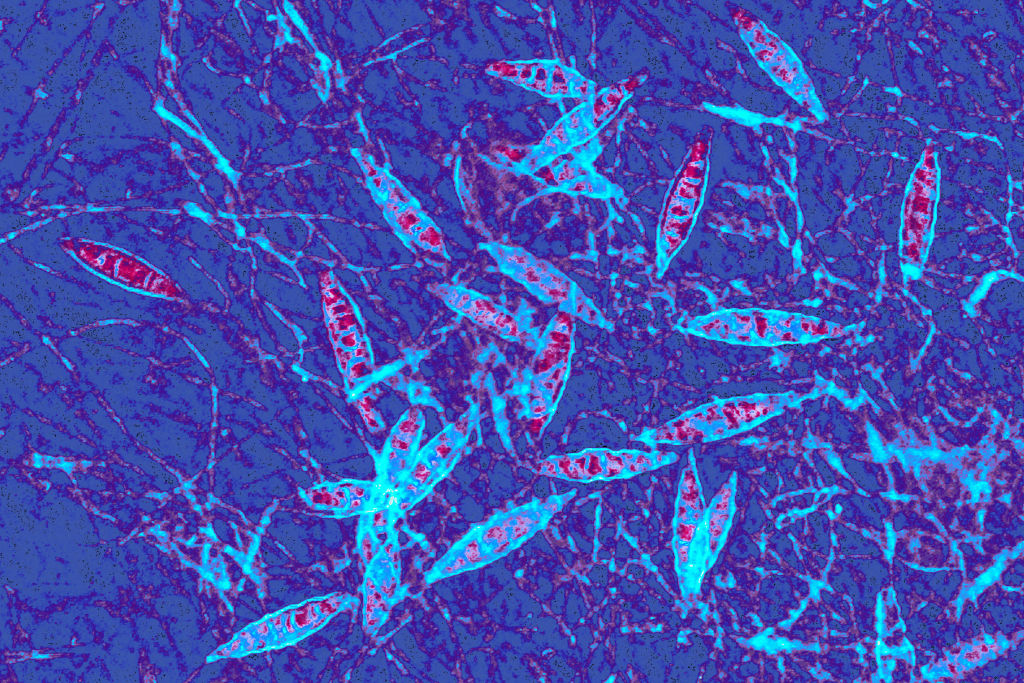'Highly contagious' and drug-resistant ringworm infections found in New York City


A free daily email with the biggest news stories of the day – and the best features from TheWeek.com
You are now subscribed
Your newsletter sign-up was successful
The first U.S. cases of a drug-resistant ringworm have been discovered in New York City, according to a report from the Centers for Disease Control and Prevention (CDC).
Ringworm is "a common, highly contagious, superficial infection of the skin, hair, or nails" caused by a fungus known as Trichophyton indotineae. It spreads via skin-to-skin contact and "usually looks like a circular pattern of raised, itchy scales," according to NBC News.
There have been two reported cases in two unrelated women. One of the women had no history of international travel, meaning the spread came from within the U.S., CNN reports. Cases first appeared in South Asia before popping up in Europe and now the U.S. The CDC believes that the fungus' new-found drug resistance is due to the "misuse and overuse of topical antifungals and corticosteroids."
The Week
Escape your echo chamber. Get the facts behind the news, plus analysis from multiple perspectives.

Sign up for The Week's Free Newsletters
From our morning news briefing to a weekly Good News Newsletter, get the best of The Week delivered directly to your inbox.
From our morning news briefing to a weekly Good News Newsletter, get the best of The Week delivered directly to your inbox.
"It may also be a little more widespread than we have noted before," Dr. Priya Soni of Cedars-Sinai Medical Center told CNN. "I think it's important to be aware that we may be seeing more of this particular species as we go into the warmer, moist summer months." Other fungal infections, like Candida auris, have also begun to make an appearance, likely because of climate change. "Any kind of ringworm really flourishes in the warm, moist weather," Soni continued. "I think with globalization and just the travel that we're going to see over the summer, this may be something that we may see more of as the months go on."
A free daily email with the biggest news stories of the day – and the best features from TheWeek.com
Devika Rao has worked as a staff writer at The Week since 2022, covering science, the environment, climate and business. She previously worked as a policy associate for a nonprofit organization advocating for environmental action from a business perspective.
-
 Palantir's growing influence in the British state
Palantir's growing influence in the British stateThe Explainer Despite winning a £240m MoD contract, the tech company’s links to Peter Mandelson and the UK’s over-reliance on US tech have caused widespread concern
-
 Quiz of The Week: 7 – 13 February
Quiz of The Week: 7 – 13 FebruaryQuiz Have you been paying attention to The Week’s news?
-
 Nordic combined: the Winter Olympics sport that bars women
Nordic combined: the Winter Olympics sport that bars womenIn The Spotlight Female athletes excluded from participation in demanding double-discipline events at Milano-Cortina
-
 Scientists are worried about amoebas
Scientists are worried about amoebasUnder the radar Small and very mighty
-
 Metal-based compounds may be the future of antibiotics
Metal-based compounds may be the future of antibioticsUnder the radar Robots can help develop them
-
 A Nipah virus outbreak in India has brought back Covid-era surveillance
A Nipah virus outbreak in India has brought back Covid-era surveillanceUnder the radar The disease can spread through animals and humans
-
 Trump HHS slashes advised child vaccinations
Trump HHS slashes advised child vaccinationsSpeed Read In a widely condemned move, the CDC will now recommend that children get vaccinated against 11 communicable diseases, not 17
-
 Deaths of children under 5 have gone up for the first time this century
Deaths of children under 5 have gone up for the first time this centuryUnder the radar Poor funding is the culprit
-
 A fentanyl vaccine may be on the horizon
A fentanyl vaccine may be on the horizonUnder the radar Taking a serious jab at the opioid epidemic
-
 Health: Will Kennedy dismantle U.S. immunization policy?
Health: Will Kennedy dismantle U.S. immunization policy?Feature ‘America’s vaccine playbook is being rewritten by people who don’t believe in them’
-
 Stopping GLP-1s raises complicated questions for pregnancy
Stopping GLP-1s raises complicated questions for pregnancyThe Explainer Stopping the medication could be risky during pregnancy, but there is more to the story to be uncovered
